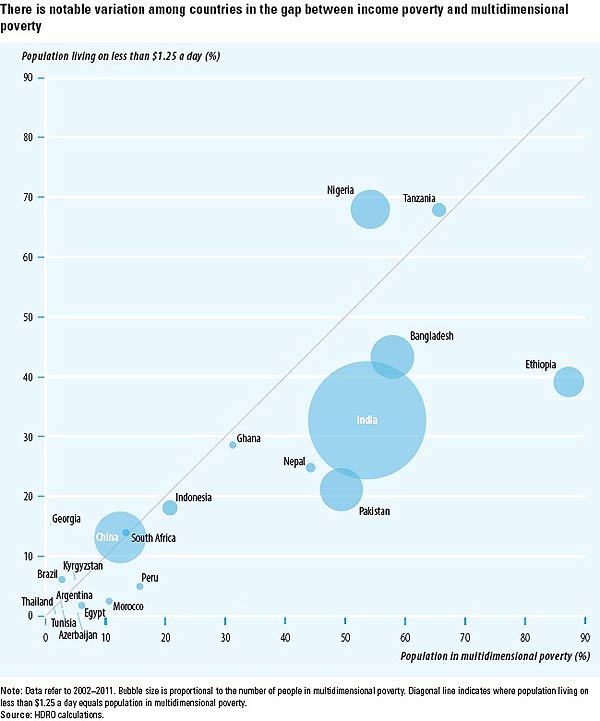UN Official: Poverty Not Just About Income
china.org.cn / chinagate.cn by Jiao Meng, April 7, 2013 Adjust font size:
|
|
|
Mr. Khalid Malik, director of the Human Development Report Office and also main author of The 2013 Human Development Report –The Rise of the South: Human Progress in a Diverse World, hosts a group interview in Beijing last month. [CnDG by Jiao Meng] |
An experimental Multidimensional Poverty Index (MPI) was introduced into this year’s UNDP Human Development Report to re-examine the poverty degree and factors in overall deprivation.
MPI examines factors at the household level -- such as adult literacy, children’s school enrolment, child mortality, access to clean water, electricity and sanitation, as well as basic household items and home construction -- that together provide a fuller portrait of poverty than income measurements alone.
"The reason to introduce the MPI is to recognize that poverty is not just about income; just by increasing income alone, you cannot reduce poverty by the day," said Mr. Khalid Malik, director of the Human Development Report Office and also main author of The 2013 Human Development Report –The Rise of the South: Human Progress in a Diverse World, during a group interview in Beijing.
He believed this new index will change the stereotypical definition of the poverty line, standing at US$1.25 and US$2 per day, issued by the World Bank.
He explained efforts should be made in the fields of education, health and public services. "It’s easy to communicate, but actually also quite misleading. Because if you look at poverty by [measure of] income, you focus on poverty from income only," he said.
In the 104 countries covered by the MPI, about 1.56 billion people -- or more than 30% of their combined populations -- are estimated to live in multidimensional poverty. The countries with the highest percentages of 'MPI poor' are all situated in Africa: Ethiopia (87 percent), Liberia (84 percent), Mozambique (79 percent) and Sierra Leone (77 percent), according to the report.




